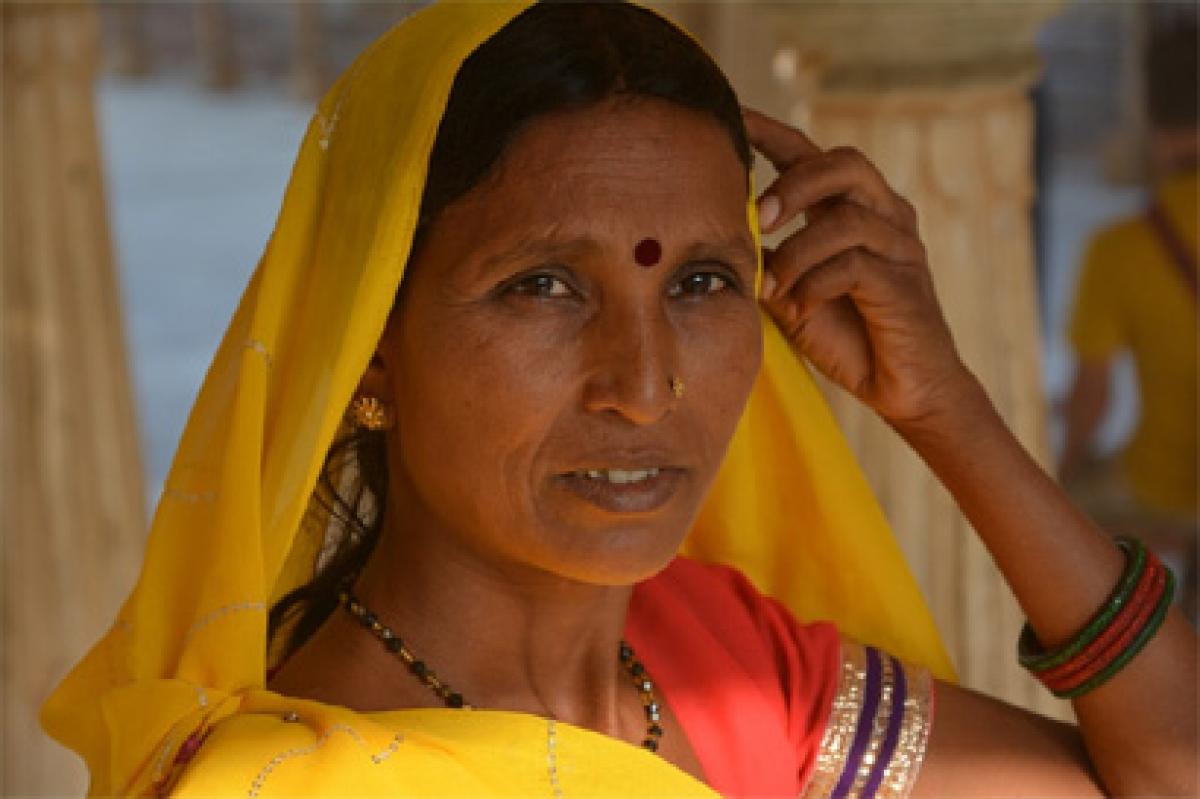Live
- NASA Tracks Five Giant Asteroids on Close Approach to Earth Today
- Pushpa 2 Hits ₹1000 Crore in 6 Days: How It Compares to Other Top Indian Films
- Vivo X200 and X200 Pro Launched in India: Price, Specifications, and Features
- Nitin Gadkari Admits Feeling Embarrassed at Global Summits Over Rising Road Accidents in India
- Comprehensive Review on Indiramma Housing Survey and Welfare Initiatives Conducted via Video Conference
- Jogulamba Temple Records Rs 1.06 Crore Hundi Revenue in 150 Days
- Opposition Slams ‘One Nation, One Election’ Bill as Anti-Democratic; BJP Allies Support the Move
- Celebrate Karthigai Maha Deepam Virtually with Sri Mandir’s LIVE Darshan Experience
- BJP Extends Support to Samagra Shiksha Abhiyan Employees' Strike, Demands Immediate Regularization and Welfare Benefits
- Dr. M. Priyanka Stresses Quality Education, Nutritious Meals, and Cleanliness in Schools
Just In

Women in Indian villages can challenge patriarchy and discriminating gender roles if their participation in solar electricity projects, from planning, implementation to maintenance, is absolute and equal, Norwegian researchers contend.
Women in Indian villages can challenge patriarchy and discriminating gender roles if their participation in solar electricity projects, from planning, implementation to maintenance, is absolute and equal, Norwegian researchers contend.
Karina Standal and Tanja Winther from the Centre of Development and Environment, University of Oslo, examined in a recent study how introduction of electricity in new contexts (solar power) affected gender relations in rural communities in Uttar Pradesh in India and in Bamiyan in Afghanistan.
"In terms of empowerment, the women feel that access to solar electricity gave them an easier everyday life and sense of accomplishments in pursuing their roles as mothers and wives/daughters-in-law and the like. This is, of course, very important in raising their life quality," Standal told IANS in an email interaction from Norway.
Centred on community solar power plants (micro-grids) for generating livelihoods or household electricity in two UP villages and four in Bamiyan, the research revealed contrasting features in terms of inclusion of women in such projects and their ability to counter patriarchy.
The study was published in the Forum For Development Studies on January 20.
Standal elaborated that the Indian project provided women several benefits but did not elevate them to a position where they could actively challenge discriminatory gender relations. In the Afghan case women role-models trained and working as "solar engineers" meant that communities experienced the benefits of women working and receiving education.
"The Indian case in mention did not have this element in the implementation. Rather, it saw it only useful to train men as 'village operators' with responsibilities of the solar equipment. In that sense, this project reinforces patriarchal structures that work to limit women's role outside their home," observed Standal.
What emerged was "when projects are carried out without women's true and equal participation, as in the Indian case, there is lost potential in a more long-term empowerment to challenge discriminating gender roles".
Standal said the Indian project did attempt at some representation of women in Village Energy Committees that are responsible for the solar systems in their village and for the monthly payments from the villagers for the consumption, salary of the village operator, maintaining bank accounts, holding meetings and the like.
"However, the women did not participate in the Village Energy Committees, as they were not allowed to speak freely due to cultural restrictions on women," Standal said, adding that this scenario "cannot be generalized to Indian villages implementing solar electricity in general".
But the fact remains, both internationally and in the Indian context, that the issues and opportunities of gender equality and energy development have not been receiving enough attention, stressed Standal.
"Women (in the case studies) are only seen as important end-users and benefits are provided for them to have a better life within the existing patriarchal system," said Standal laying strong emphasis on ensuring that "women are granted equal access to participation in such projects".
"Participation (should be) at all levels and not reduced to certain areas to make the most of these energy projects."
Standal said the Indian project was initiated by a private Norwegian company and executed as a public-private partnership between the company, the Indian Renewable Energy Development Agency (IREDA), Ministry of New and Renewable Energy (MNRE) and Norad (Norwegian Agency for Development Cooperation).
"The Afghan case was initiated by the NGO Norwegian Church Aid in support with the Indian Barefoot College. Their model of training women as Barefoot Solar Engineers is very interesting and I think has had several added values to the project in terms of impact on gender relations and more opportunities for women," concluded the researcher.
Adding from her own experience in the field, Indian environmental economist Joyashree Roy of Kolkata's Jadavpur University, concurred.
"True inclusion of a stakeholder (women) from very beginning helps in getting them as change maker," Roy told IANS.

© 2024 Hyderabad Media House Limited/The Hans India. All rights reserved. Powered by hocalwire.com







